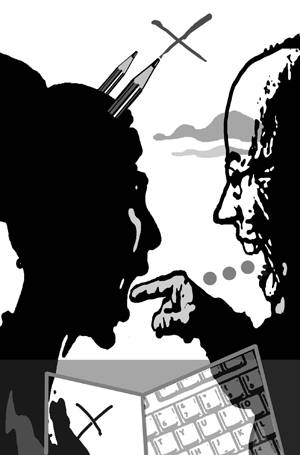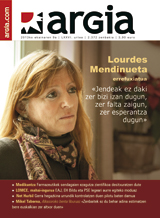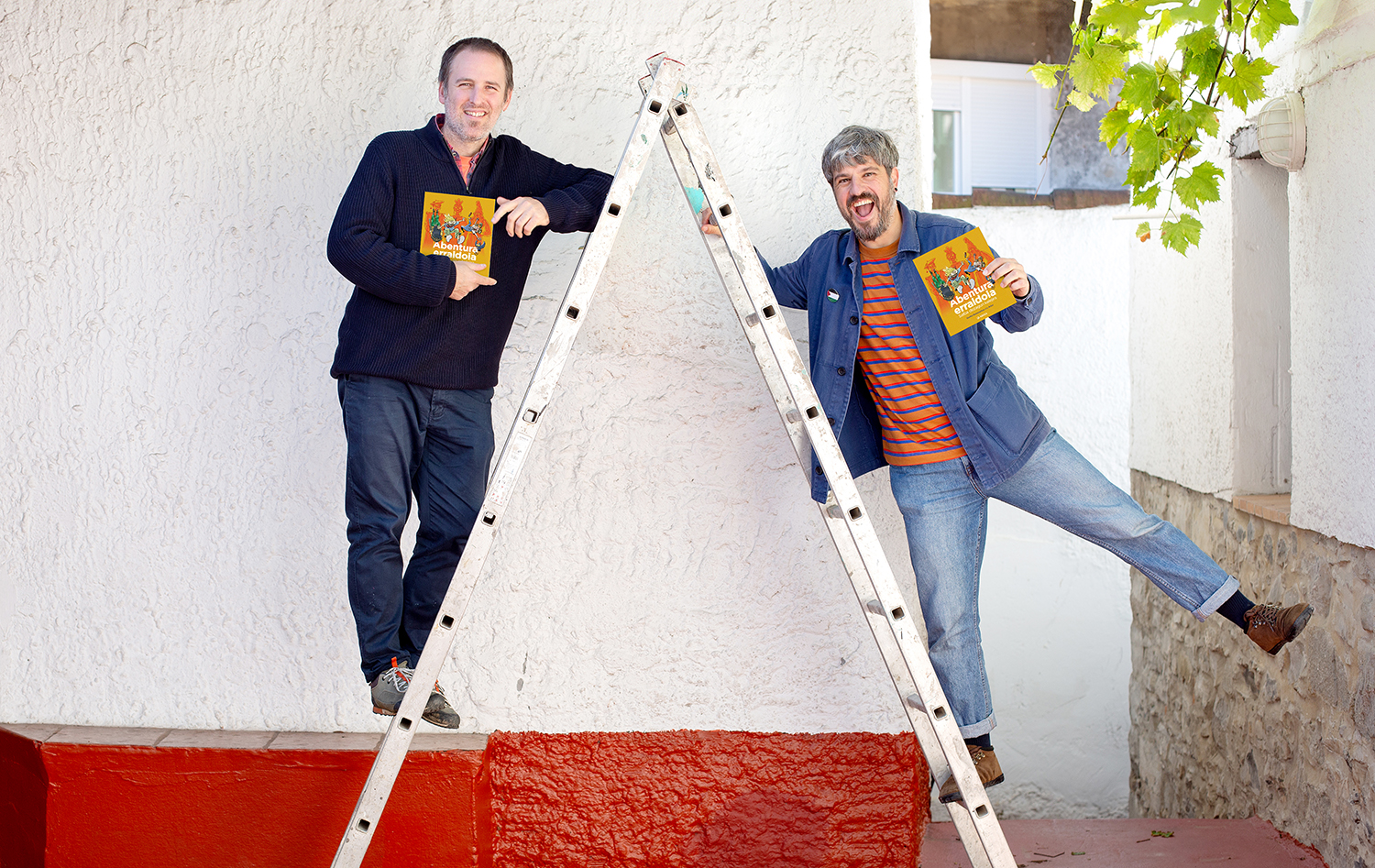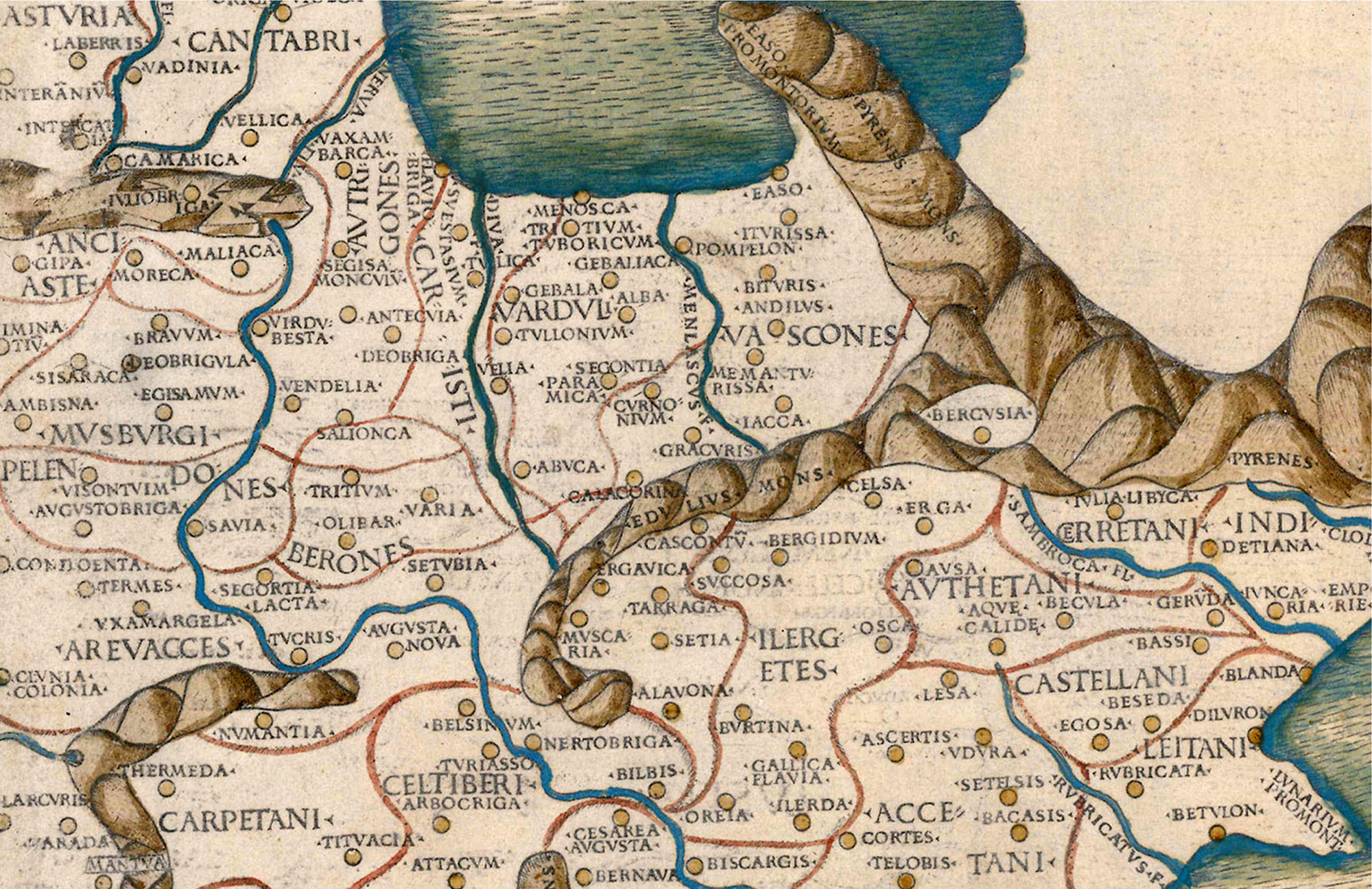The dabraco as the trunk

It is well known that communication is on its way: good communication, the cause of every success; lack of communication, the cause of every failure. How many times we do not listen to governments of all kinds who have taken the appropriate measures, but who have failed in communication, and that is why the citizens have not understood them. They are appropriate measures, they say, that we have perhaps not been able to pass on. Citizens are often regarded as fools. That is the feeling I experienced recently, incidentally, when I received at home the magazine Gipuzkoa Berria, distributed by the Provincial Council of Gipuzkoa.
How can we deny the importance of communication – smoke or coal is something else – in such an important society? There I see that many friends who have studied engineering have become merchants, and have learned journalism, to spread propaganda -- hidden or in sight. In order to survive in this competition forest, it is essential to train in communication.
The problem (one of the problems), however, beyond that undeniable importance, is the tendency to reduce the whole problem to communication, as has already been said, to look from the perspective of communication. This reduction also uses quite pathological theoretical bases. And it is truly disappointing to see in such a banal way the issues that throughout history have been worked on for a long time and with great complexity (because to be a good communicator you have to be brave, skin and hard front).
Communication gurus say, for example, that between oral language and writing there is a continuum, that is, that writing is a kind of reflection of what is spoken. This idea has undoubtedly been the main in the history of thought, but it has also been widely criticized and denied since the middle of the 20th century (at least). I'm not going to give you any reference, because we live in a village where standard writing is considered an intellectual pose, but I don't even want to imagine what would happen if someone dared to write the name of a philosopher in a column -- no more, no less, if he's a pror.
But despite all these issues, I think anyone who's given to written creation, beyond word and paired games, that is, has realized that there's a leap between spoken and written. That is not written, that is, simply a sort of refinement of the oral hairstyle and, ultimately, subordinate. Written creativity is as incommunication as communication. As Clov said: Signifier? Nous Signifier? (rire bref). Anyone who has reflected on the writing has realised that there is an insurmountable vacuum, an abyss that cannot be covered and that the writer has to move a little beyond the abyss. That distance between what he writes and what he receives is a problem from the point of view of communication, but from the point of view of creativity a great ally. How many revolutions can give text year after year, century after century. But in the oral language, understanding has to be immediate so that everything you want to say is conveyed correctly.
I've often been told that my writing has nothing to do with my way of being. I do not know how to regard it as a flower (or a nonsense) with the first or the second, but I am glad that there is a difference between the two. In front of the computer, as long as you want, when you go to buy bread or if it was like in the elevator conversations, that would be pathetic.
Party and recreation. Oral History of Rock Radical Vasco
Javier 'Jerry' Corral
Books, 2025
------------------------------------------------
Javier Corral ‘Jerry’ was a student of the first Journalism Promotion of the UPV, along with many other well-known names who have... [+]




















